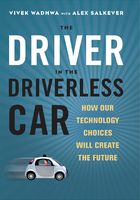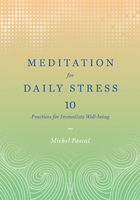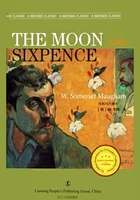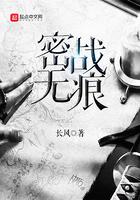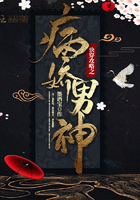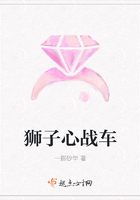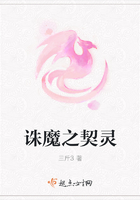The Socratic Inquisition Uncovering truth by interrogation
To the delight of politicians and the chagrin of philosophers, many people can be convinced of just about anything so long as one does not employ rational argument. Ancient Greek sophists such as Protagoras and Gorgias, however, were dealing with a more receptive audience. There were few entertainments more appealing to noblemen living in the fifth century BC than listening to the debates of great speakers. As participants in the democratic system of the day, a grounding in the art of rhetoric at the feet of a professional sophist was an essential part of young aristocrats' education. If today's political classes have rejected the virtues of a classical education, they make a much lamented exception in the case of the sophist's art. At the time of writing, Britain's governing Labour Party sends its would-be spin doctors on special training weekends where they learn how to avoid answering a straight question. One advanced exercise involves a face-to-face examination in which the candidate is asked simply, 'What is the time?' If the subject can hold out for fifteen minutes without giving the answer, they are through to the next stage. What the next stage consists of no one has yet revealed, and if they ever do it would probably not be wise to believe them. Such dissemblers practised their skill unmolested until the arrival of Socrates (469-399 BC), who discovered, or rediscovered, something that was kryptonite to sophists: the truth. Socrates administered this poison through the device now known as the Socratic method, a relentless battery of questions designed to undermine a position using the sophist's own words and admissions.
Socrates possessed the perfect constitution for a battle of wills. He was a man who would meditate barefoot in the snow for days or, on the point of entering a friend's house, pause for hours on the threshold while he scrutinized a philosophical problem in silence. A robust individual, he distinguished himself as a soldier in his early life and boasted a prodigious capacity for alcohol. He died at the age of seventy, leaving two small children – one apparently an infant in arms. Socrates was also famously ugly. A traveller skilled in reading faces once told him he had the face of a monster who was capable of any crime, to which the philosopher replied, 'You know me, sir!' Others were more charitable. The young blade Alcibiades likened Socrates to a statue of the hideous Silenus that opens to show beauties hidden within. Alcibiades apparently considered this remark to constitute flirting, which only goes to show that the Greeks were considerably thicker-skinned than ourselves.
If allowances were made for his appearance, Socrates exploited them to good effect. As an old man, he asked his opponents to consider his age and keep their answers brief and to the point so that he would not lose the thread. He was not worried about his own concentration, but that of the assembled spectators. If men were to gain the full benefit of his thought, they would need to learn how to listen. They would need to pay close attention to the content of questions and answers rather than simply marvelling at their aesthetic merit. Phrasing one's assertions as questions is a recognized debating tactic for today's sophists, but Socrates is not regarded as the founder of Western philosophy because of his rhetorical skills. The aim of Socratic method is not merely to win the argument but to discover the absolute truth of the matter. One must always strive for the truth, Socrates held, even if that involves standing corrected and losing a debate. Socrates was not in the habit of losing debates, but there were times when he acknowledged a stalemate. While this involved admitting his ignorance at the end of a debate as strongly as he professed it at the outset, it was never without the proviso that his opponent was equally afflicted.
For someone who eventually overturned an establishment single-handedly, Socrates was curiously modest. Unlike the sophists, he charged no fees and even declared himself incompetent to teach. Whereas modern-day inquisitors might decline to give their personal opinions while roasting those of others, Socrates was quite candid in declaring his own position – which he claimed was one of ignorance. It was for this cheerful admission that the Delphic Oracle famously pronounced him the wisest man in Greece. If, as he claimed, the only thing he knew was that he knew nothing, this did not prevent him from expounding his own opinions at length. His modesty is often irony, while his praise for the wisdom of others is usually sarcasm. There is a deeper sense, however, in which his modesty does betray integrity. Having urged that we must 'follow the argument where it leads', it makes good sense also to resolve that one will not hold dogmatically to any beliefs with which one began the argument. This means being ready to take criticism as well as to back propositions. It is possible to treat even politicians unfairly, after all.
Socrates certainly had an agenda and he espoused a complex philosophical system. But he did not believe the truth to be something that belonged to him as such – like an original thesis which was his to impart at will. Rather, the truth was something immanent in the world and in men, which he could draw out through reasoned questioning. So, rather than promote himself (like the sophists) as a great repository of wisdom, Socrates likened himself to a midwife who delivers the truth. In practice, he routinely asked recognized experts to offer their definition of a concept such as justice, courage or the good. The early stages of an argument were then constructed in ponderous detail one step at a time, with the philosopher making apparently innocuous remarks and his interlocutor intoning the mantra: 'Yes, that is so, Socrates.' Socrates would then increase the content of his questions until he found a belief held by his opponent that was both true and at odds with the latter's initial position. Further questioning followed until an acceptable definition was agreed upon. The response of the opponent was usually to marvel at Socrates' wisdom, rather than take umbrage at his verbal trickery. Here one must allow not only for the good manners of the Greeks, but also for the fact that Socrates left no written work – his thoughts come to us via the dialogues of his brilliant pupil Plato.
Once the interlocutor tripped himself up, there was no going back because Socrates never allowed his interlocutors to accept a point provisionally or to argue cases in which they did not believe. According to Socrates himself, this was because his method had a moral element. He was concerned not with what men might think, but with what they actually did think. The objective of philosophy is to improve men's souls and not merely refine a disembodied canon of thought. More practically, Socrates wanted to prevent his opponents from reciting pre-prepared answers which they had learned verbatim from so-called experts. A book,' he said, 'can answer no questions.' The two rationales are really one and the same, for Socrates wanted men to think for themselves (if only because that is the only state in which they are malleable enough to be convinced by his arguments). While the Socratic method seeks to discover how humans per se ought to live, it is also concerned with impressing on individuals the correct fashion in which to conduct their lives.
Every thinking person periodically questions their aims and motives and the beliefs that underpin them. The kind of interrogation practised by Socrates was directed towards the most general kinds of truth, the 'bigger picture' as it were. In everyday life, however, questioning the grounds of our entire world-view does not tend to yield practical advice. Arriving at a picture of what we are and where we should be going is a piecemeal process, and any changes to our lives are made on the basis of what has gone before. If, for example, I ask a friend's advice on how to present myself at a job interview, I want to be told to buy a new tie or get myself a smart haircut. I do not want to hear that I should change my entire wardrobe or consider a different career. On the other hand, the reasoning behind Socratic method is that a truly accurate view of the world is one that does not harbour the inconsistencies which questioning by Socrates reveals. If we find a perfectly consistent standpoint, then we have found the truth. We may no longer believe that there can be only one 'correct' world-view, and most of us accept that a certain degree of inconsistency in one's beliefs is less a sign of ignorance than a reflection of a world in which absolute truths cannot be guaranteed. However, if my interview is for a job at an old-fashioned insurance company and my personal style favours shoulder-length hair and facial piercings, consistency requires that I either alter my appearance radically or seek employment elsewhere. To expect to succeed otherwise is at the very least to display a somewhat unbalanced view of the world.
The Athenians' desire to better themselves eventually ran out with their patience. Consisting as it did in the public humiliation of the great and the good, Socrates' search for the truth was quite correctly identified as undermining the fabric of Greek society. Noblemen such as Critias and Charmides had been shown not to know what temperance or moderation were. The great generals Laches and Nicias had been revealed to be ignorant of the meaning of courage. Finally, Socrates denigrated the essential principle of Athenian democracy by arguing that decisions should not be made by vote, but by philosopher kings on the basis of their superior wisdom. It was only through this means, he held, that we could avoid the iniquities of mob rule and leaders who pander to the worst passions of their electorate. In another, less commendable sense, his stance is reminiscent of that taken by American and European communists during the Cold War. By denouncing the Western model of democracy, they criticized the very system that allowed such protest to take place. The McCarthy trials aside, the authorities of Athens were not as forgiving as our own. Socrates was charged with corrupting the young and sentenced to death by poisoning. As the hemlock took hold, his friends gathered around to strain for his last words of wisdom. 'We owe a cock to Aesculapius,' he croaked, 'do not forget to pay the debt.'

